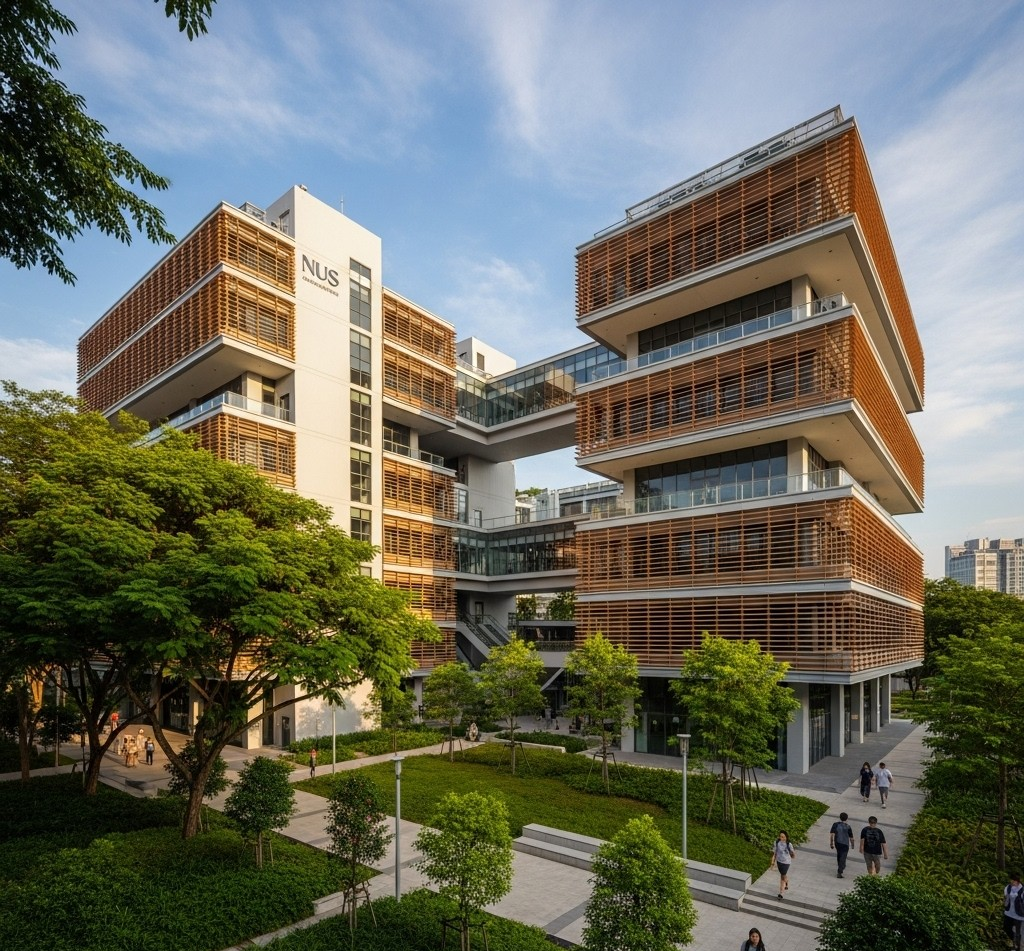Your guide to the Asia Research Institute Fellowship 2026 is here to turn your academic aspirations into a tangible plan. Applying for a prestigious fellowship like the one at the National University of Singapore’s Asia Research Institute (ARI) can feel like a monumental task. You have the research, the passion, and the ambition, but navigating the process can be daunting. This guide is designed to demystify the application, providing you with a clear, step-by-step roadmap to crafting a compelling submission. Let’s get you ready to take this career-defining step.

Asia Research Institute Fellowship 2026
| Fellowship Stream | Ideal Candidate | Key Focus Area |
| Postdoctoral Fellowship | Early-career scholars (0-2 years post-PhD) | Turning a doctoral dissertation into high-impact publications. |
| Research Fellowship | Scholars with at least 2 years of postdoctoral experience | Developing a new, significant research project. |
| Senior Research Fellowship | Established academics with a distinguished publication record | Leading a major research program and mentoring junior scholars. |
The Asia Research Institute Fellowship 2026 is a highly competitive but immensely rewarding opportunity. By understanding the institute’s mission, carefully selecting the right fellowship stream, and meticulously preparing each component of your application, you can present a powerful case for yourself.
Remember, this is more than just an application; it’s a narrative about your academic journey and your future vision. Tell your story with confidence and clarity. The deadline may seem far away, but the time to start preparing is now. Break down the process into small, manageable steps, and you’ll be well on your way to joining Asia’s premier research community. Good luck!
What is the Asia Research Institute (ARI)?
Nestled within the globally acclaimed National University of Singapore (NUS), the Asia Research Institute stands as a beacon for scholars dedicated to research in the humanities and social sciences. Established in 2001, ARI’s mission is to foster groundbreaking, integrative research on Asia’s diverse regions and connections. It’s not just an institute; it’s a dynamic intellectual community.
Being an ARI Fellow means you’re positioned at a global crossroads of ideas in Singapore, one of the world’s most vibrant and connected cities. The institute is organized into several key research clusters, including:
- Asian Migration1
- Religion and Globalisation
- Science, Technology, and Society
- Inter-Asia Engagements

Decoding the Asia Research Institute Fellowship 2026 Opportunities
The Asia Research Institute Fellowship 2026 isn’t a one-size-fits-all program. ARI typically offers several types of fellowships tailored to different career stages. Understanding which one fits you best is essential. While the official call for 2026 will have the final details, the streams are generally consistent year to year.
Postdoctoral Fellowship
This is for you if you’ve recently completed your PhD (or will have by the start date). The primary goal is to give you the dedicated time and resources to transform your doctoral dissertation into peer-reviewed journal articles or a monograph. It’s a fantastic springboard for an academic career.
Research Fellowship
Aimed at scholars who are a few years past their PhD, this fellowship supports the development of a second major research project. You’re expected to have a solid publication record and a clear vision for your next contribution to the field.
Senior Research Fellowship
For distinguished senior academics, this fellowship provides a platform to pursue a significant research agenda, mentor junior colleagues, and contribute to the intellectual leadership of the institute.
Are You Eligible? Key Requirements for Applicants
While specific criteria can vary slightly each year, the core eligibility requirements, as outlined on the official ARI fellowship page, remain consistent.
- Doctoral Degree: Applicants must possess a PhD from a reputable university.2 For postdoctoral positions, you may be able to apply if your PhD is under examination, but the degree must be conferred by the fellowship start date.
- Research Focus: Your proposed research must be of a high academic standard and align directly with one of ARI’s research clusters. This is non-negotiable.
- Publication Record: Your publication history should be appropriate for your career stage. Quality is always valued over quantity.
- English Proficiency: As English is the working language of the institute, a high level of proficiency is required.
Crafting a Winning Application: A Step-by-Step Guide
Your application package is your voice in the selection process. It needs to be clear, professional, and compelling. Let’s break down the essential components.
1. The Research Proposal (The Heart of Your Application)
This is where you make your case. Your proposal (typically 3-5 pages) should be a masterpiece of clarity and vision.
- Clear Research Question: State your central question and objectives plainly. What puzzle are you trying to solve?
- Contribution to the Field: Explain how your project will generate new knowledge and contribute to existing academic debates. Why does this research matter?
- Methodology: Outline your research methods. How will you answer your research question? Be specific about your sources and analytical approach.
- Fit with ARI: Explicitly state which research cluster you wish to join and why your project is a perfect fit. Name one or two ARI researchers whose work resonates with yours.
- Timeline: Provide a realistic month-by-month plan for your fellowship year, outlining research activities and publication goals.
In my experience advising applicants, the most common mistake is writing a proposal that’s too broad. The selection committee wants to see a focused, achievable project that can be realistically completed within the fellowship period.
2. The Curriculum Vitae (CV)
Your CV should be clean, up-to-date, and easy to scan. Prioritize your academic achievements. Include:
- Education and qualifications
- Publications (separated by type: books, journal articles, chapters)
- Conference presentations
- Awards and grants received
- Relevant research experience
3. Letters of Recommendation
Choose your referees wisely. They should be established scholars who know you and your research well. Contact them at least a month in advance, provide them with your research proposal and CV, and gently remind them of the deadline. A lukewarm letter can be more damaging than you think, so select recommenders who can speak enthusiastically and specifically about your potential.
4. Writing Sample
Select a piece of your best-published work or a polished chapter from your dissertation. It should showcase your analytical skills, theoretical command, and clear writing style. Ensure it’s relevant to the project you are proposing.
Life as an ARI Fellow: What to Expect in Singapore 🇸🇬
Securing an ARI NUS fellowship is not just a professional opportunity; it’s a life experience. Fellows receive a competitive monthly stipend, a personal office, and access to the world-class libraries and research facilities of NUS.
Beyond the resources, the true value lies in the community. You’ll participate in weekly seminars, workshops, and conferences, engaging with leading scholars from around the globe.3 This environment of constant intellectual exchange is where new ideas are born and collaborations are forged.

Living in Singapore is another major perk. It’s a safe, efficient, and culturally rich city-state that serves as a perfect gateway to the rest of Asia. The food is legendary, the public transport is impeccable, and the blend of cultures is endlessly fascinating.
UK Government’s AI & Tech Fellowship 2025
Your Ultimate Guide to the ISPD Fellowships 2026: Advancing Your Career in Peritoneal Dialysis
FAQs
Q1:What is the typical monthly stipend for an ARI fellowship?
While the exact amount for 2026 will be confirmed in the official call, stipends are highly competitive and designed to cover living costs in Singapore comfortably. Historically, they have been in the range of S5,000toS7,500 per month, depending on the fellowship type.
Q2:Can I apply if my PhD has not yet been conferred?
Yes, you can typically apply for the Postdoctoral Fellowship if you are in the final stages of your PhD (e.g., dissertation submitted). However, you must provide proof that the degree will be awarded before the fellowship’s official start date.
Q3:What is the acceptance rate for the ARI fellowship?
ARI does not publish official acceptance rates. However, given its international prestige and the high volume of applications from top scholars worldwide, the fellowship is extremely competitive.
Q4:Can I work on a non-Asian topic at the Asia Research Institute?
It’s highly unlikely to be successful. The institute’s core mission is research on Asia. Your project must demonstrate a clear and substantial focus on one or more Asian societies, cultures, or its global connections to be considered.










